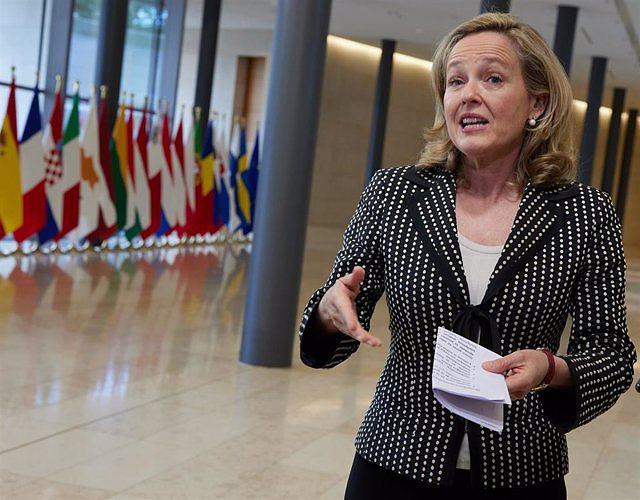MADRID, 20 Jun. (EUROPA PRESS) -
For the second consecutive year, Spain remains in 36th place on the list of the most competitive countries in the world, according to the latest 'World Competitiveness Ranking', prepared annually by the IMD business school and which this year places it at the head of the 64 economies analyzed to Denmark, ahead of Ireland and Switzerland.
Spain's position is mainly due to its results in the economic performance factor, where it rises to 32nd place from 35th last year, as well as in business efficiency, where it also advances three positions and ranks 37th.
Regarding the economic performance of Spain, its improvement in international investment stands out, where it ranks 11th, compared to 15th in 2022, as well as the improvement of seven positions in international trade, up to thirteenth place. On the contrary, it worsens to position 55 from 52 in employment and to 36 from 32 in prices.
Likewise, the study points out that Spain's performance in the government efficiency factor continues to be a great weakness, since the country appears in 51st place, one more behind than last year.
In relation to the efficiency of the Government, the efficiency of the institutional framework and business legislation also continue to decline, the authors point out.
For José Caballero, senior economist at the World Competitiveness Center, "Spain's strengths include high secondary school enrollment ratios (4), life expectancy (7), exports of commercial services (10) and the level of inequality with respect to life expectancy (10)".
However, for the expert, Spain's weaknesses include the unemployment rate (61), the low effectiveness of unemployment legislation (62), society's understanding of the need for economic and social reforms (60) and the implementation of digital transformation in companies (56).
In this way, among the main challenges for the Spanish economy in 023 are the need to invest European funds efficiently, strengthening the productive system and configuring a resilient economy; manage inflation in such a way that it does not harm competitiveness, avoiding unnecessary indexation; reduce the tax burden and create a stable framework for companies; as well as improve the employability of workers and rethink employment policies within the framework of social dialogue.
The results of the 35th edition show that, despite the complex interplay of inflation, geopolitical risk and political fragmentation, the global competitiveness landscape remains dynamic, especially in Europe.
Likewise, in general terms, the list shows the gap between protectionist and free trade economies and how the combination of global political, economic and social events is favoring the appearance of "clear winners and losers".
"Political fragmentation is a consequence of Covid-19 and the war in Ukraine and one of its main effects is that a growing number of countries _Singapore, Saudi Arabia and India, for example_ pursue their own interests," says Professor Arturo Bris, director of the IMD World Competitiveness Center, for whom with the relaxation of inflationary pressures and the uncertainty of the stock markets, it is now possible to distinguish winners and losers in a context in which multiple crises overlap
Among the winners are countries that have the agility and adaptability to cope with today's unpredictable environment and with strong economies, as in the case of Ireland, Iceland and Bahrain, or with governments capable of timely adaptation of policies based on conditions. economies of the moment, such as the United Arab Emirates, Saudi Arabia, Qatar and Singapore.
In this year's edition Denmark, Ireland and Switzerland appear as the most competitive economies in the world. In the case of Denmark, the country maintains its privileged position at the top of the ranking, thanks to its continuous achievements in all competitiveness categories, leading in business efficiency and infrastructure, and improving slightly in government efficiency.
In the case of Ireland, rising from seventh to second place, the advance is largely supported by its significant achievements in terms of economic performance.
Switzerland, for its part, retains third place thanks to its good results in all categories, since it is the first country in government efficiency and infrastructures and ranks seventh in business efficiency.
In this sense, the authors highlight that the most prosperous economies tend to be smaller, have a good institutional framework that includes solid educational systems, as well as good access to markets and trading partners.
The rest of the top ten positions in the ranking are occupied by Singapore, the Netherlands, Taiwan, Hong Kong, Sweden, the United States and the United Arab Emirates.
By region, although they are still the most competitive in the world, both East Asia (19th in 2023) and Western Europe (21st in 2023) fell slightly. The North American economies remain stable in 26th position (the same as in 2022), while Eastern Europe experiences the largest decrease in competitiveness (from 39th to 42nd place).

 Exploring Cardano: Inner Workings and Advantages of this Cryptocurrency
Exploring Cardano: Inner Workings and Advantages of this Cryptocurrency Seville.- Economy.- Innova.- STSA inaugurates its new painting and sealing hangar in San Pablo, for 18 million
Seville.- Economy.- Innova.- STSA inaugurates its new painting and sealing hangar in San Pablo, for 18 million Innova.- More than 300 volunteers join the Andalucía Compromiso Digital network in one month to facilitate access to ICT
Innova.- More than 300 volunteers join the Andalucía Compromiso Digital network in one month to facilitate access to ICT Innova.-AMP.- Ayesa acquires 51% of Sadiel, which will create new technological engineering products and expand markets
Innova.-AMP.- Ayesa acquires 51% of Sadiel, which will create new technological engineering products and expand markets The CNMV once again suspends Applus's listing
The CNMV once again suspends Applus's listing Línea Directa earns 10.1 million euros in the first quarter, compared to losses of 5.3 million
Línea Directa earns 10.1 million euros in the first quarter, compared to losses of 5.3 million Unicaja triples its profit in the first quarter, up to 111 million euros
Unicaja triples its profit in the first quarter, up to 111 million euros BBVA earns 2,200 million in the first quarter, 19.1% more
BBVA earns 2,200 million in the first quarter, 19.1% more How Blockchain in being used to shape the future
How Blockchain in being used to shape the future Not just BTC and ETH: Here Are Some More Interesting Coins Worth Focusing on
Not just BTC and ETH: Here Are Some More Interesting Coins Worth Focusing on UPV students build a prototype of a wooden house to move to Equatorial Guinea
UPV students build a prototype of a wooden house to move to Equatorial Guinea The UA opens the call for the Impulso 2024 Awards for the best innovative business initiatives
The UA opens the call for the Impulso 2024 Awards for the best innovative business initiatives ALI, virtual assistant from Alicante, internationally recognized by the OECD
ALI, virtual assistant from Alicante, internationally recognized by the OECD Retrópolis brings the golden age of video games and computing to the UPV
Retrópolis brings the golden age of video games and computing to the UPV A million people demonstrate in France against Macron's pension reform
A million people demonstrate in France against Macron's pension reform Russia launches several missiles against "critical infrastructure" in the city of Zaporizhia
Russia launches several missiles against "critical infrastructure" in the city of Zaporizhia A "procession" remembers the dead of the Calabria shipwreck as bodies continue to wash up on the shore
A "procession" remembers the dead of the Calabria shipwreck as bodies continue to wash up on the shore Prison sentences handed down for three prominent Hong Kong pro-democracy activists
Prison sentences handed down for three prominent Hong Kong pro-democracy activists ETH continues to leave trading platforms, Ethereum balance on exchanges lowest in 3 years
ETH continues to leave trading platforms, Ethereum balance on exchanges lowest in 3 years Investors invest $450 million in Consensys, Ethereum incubator now valued at $7 billion
Investors invest $450 million in Consensys, Ethereum incubator now valued at $7 billion Alchemy Integrates Ethereum L2 Product Starknet to Enhance Web3 Scalability at a Price 100x Lower Than L1 Fees
Alchemy Integrates Ethereum L2 Product Starknet to Enhance Web3 Scalability at a Price 100x Lower Than L1 Fees Mining Report: Bitcoin's Electricity Consumption Declines by 25% in Q1 2022
Mining Report: Bitcoin's Electricity Consumption Declines by 25% in Q1 2022 Oil-to-Bitcoin Mining Firm Crusoe Energy Systems Raised $505 Million
Oil-to-Bitcoin Mining Firm Crusoe Energy Systems Raised $505 Million Microbt reveals the latest Bitcoin mining rigs -- Machines produce up to 126 TH/s with custom 5nm chip design
Microbt reveals the latest Bitcoin mining rigs -- Machines produce up to 126 TH/s with custom 5nm chip design Bitcoin's Mining Difficulty Hits a Lifetime High, With More Than 90% of BTC Supply Issued
Bitcoin's Mining Difficulty Hits a Lifetime High, With More Than 90% of BTC Supply Issued The Biggest Movers are Near, EOS, and RUNE during Friday's Selloff
The Biggest Movers are Near, EOS, and RUNE during Friday's Selloff Global Markets Spooked by a Hawkish Fed and Covid, Stocks and Crypto Gain After Musk Buys Twitter
Global Markets Spooked by a Hawkish Fed and Covid, Stocks and Crypto Gain After Musk Buys Twitter Bitso to offset carbon emissions from the Trading Platform's ERC20, ETH, and BTC Transactions
Bitso to offset carbon emissions from the Trading Platform's ERC20, ETH, and BTC Transactions Draftkings Announces 2022 College Hoops NFT Selection for March Madness
Draftkings Announces 2022 College Hoops NFT Selection for March Madness























